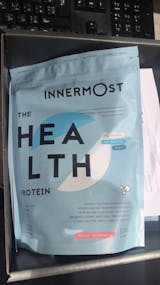Looking to tone up, lose fat, fight disease and stay healthy? Then look no further than Alpha Lipoic Acid to help you reach your goals. Found in The Tone Capsules (as well as broccoli).
Alpha Lipoic Acid (ALA) was first isolated in the 1950s. Initially, it was only looked at for its effect on glucose, but in the late 1980s it was found that ALA also had powerful antioxidant properties, and so was reclassified as an antioxidant. ALA is both water and fat soluble and can pass the brain-blood barrier.
As a result, it is often referred to as the universal antioxidant. Due to ALA’s unique properties, it can be used throughout the body, acting in the muscles, fat, organs and brain. Additionally, ALA can work on the inside and outside of cells, where it can destroy free radicals to prevent disease.
What is Alpha Lipoic Acid?
ALA is a fatty acid found in the mitochondria of cells. It's essential for aerobic energy metabolism and also acts as a powerful antioxidant, breaking down harmful free-radicals which are by-products of energy production. ALA can be synthesised in the body, or consumed through eating meats and some fruits and vegetables such as broccoli.
The Health Benefits of Alpha Lipoic Acid
Amongst antioxidants, ALA is unique in its ability to remain active in both water and fat lipid environments. This means that it can help protect most areas of the body against the damaging effects of free radicals.
- Generates Energy
- Breakdown Carbohydrates
- Boosts Your Immune System
- Protection Against Liver Disease
- Fights Against Diabetes
- Battles Heart Disease
- Protects Against Neurological Age Decline
The Science
Furthermore, there is research to support ALA’s ability to reduce oxidation and inflammation in the body. There is also some research to support the role of ALA in reversing some of the oxidant damage associated with ageing, so it could be considered an anti-ageing compound.
Interestingly, ALA is also thought to help the body utilise stored fat, which can aid high-intensity exercise performance and reduce fat mass – ideal if you're looking to get fitter and lose some fat.
Summary
ALA is one of the ingredients in The Tone Capsules. Recommended for those looking to remain healthy, maintain their youthful appearance, have more energy for their workouts and maximise the amount of fat you burn while doing so.
References
- Wollin SD, Jones PJ, Alpha-Lipoic Acid and Cardiovascular Sisease . J Nutr. (2003). Click here.
- Moini H, Packer L, Saris NE, Antioxidant and Pro-oxidant Activities of Alpha-Lipoic Acid and Dihydrolipoic Acid. Toxicol Appl Pharmacol. (2002). Click here.
- Merry BJ, Kirk AJ, Goyns MH, Dietary Lipoic Acid Supplementation Can Mimic Or Block The Effect Of Dietary Restriction On Life Span. Mech Ageing Dev. (2008). Click here.
- Suh JH, et al. Dietary Supplementation With (R)-Alpha-Lipoic Acid Reverses The Age-Related Accumulation Of Iron And Depletion Of Antioxidants In The Rat Cerebral Cortex. Redox Rep. (2005). Click here.
- Stevens, M. J., Obrosova, I., Cao, X., Van Huysen, C., & Greene, D. A. (2000). Effects of DL-alpha-lipoic acid on peripheral nerve conduction, blood flow, energy metabolism, and oxidative stress in experimental diabetic neuropathy. Diabetes, 49(6), 1006-1015. Click here.























